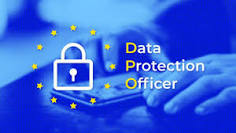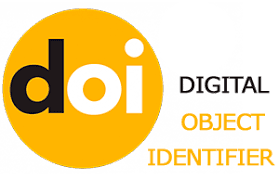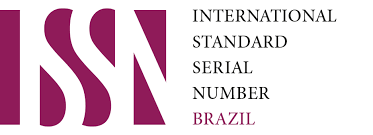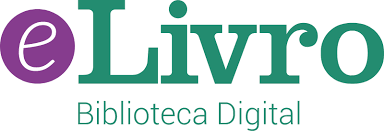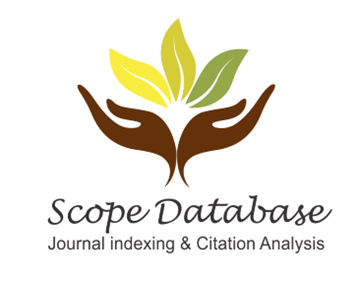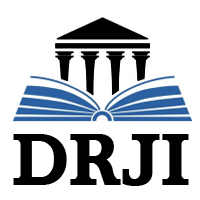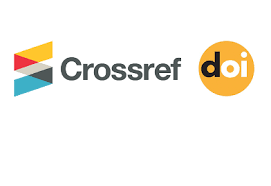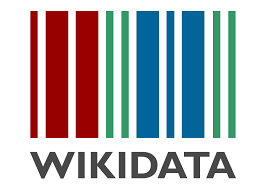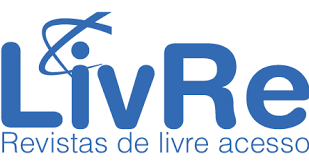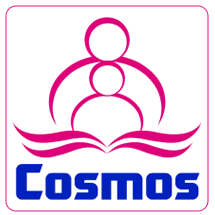ESTUDIO DE LOS CAMBIOS EN EL COMPORTAMIENTO SEXUAL EN PAREJAS FRENTE A LAS TECNOLOGÍAS DIGITALES
DOI:
https://doi.org/10.47820/jht.v3i1.46Palabras clave:
tecnologías digitales son medios populares para intercambiar, comunicarseResumen
Las tecnologías digitales son medios populares para intercambiar, comunicarse y acceder a la información, y su uso ha ido en aumento en los últimos años. Se observan estudios de cambios en el comportamiento de la sociedad debido a la nueva forma de comunicarse y relacionarse. Para evaluar el comportamiento sexual de las parejas durante el período de aislamiento social impuesto por la pandemia y el uso frecuente de las Tecnologías Digitales (DT), se realizó una encuesta transversal en línea para obtener información sobre el comportamiento sexual y el uso de TD. Un total de 1.357 personas fueron entrevistadas utilizando la herramienta Google Forms, de las cuales 616 eran elegibles para participar en la encuesta. De acuerdo con los datos obtenidos, el 24,02% de los participantes del estudio utilizaron los DT, en los cuales se observó un cambio en el comportamiento sexual en este grupo que tiene el hábito de usar DT. El análisis de regresión logística verificó una asociación entre las variables que predijeron cambios significativos y positivos en el comportamiento sexual de los individuos, lo que apunta a una tendencia hacia el cambio en el comportamiento sexual dado el mayor uso de DT.
Descargas
Citas
ANAND, N.; THOMAS, C.; JAIN, P. A. et al. Internet use behaviors, internet addiction and psychological distress among medical college students: A multi centre study from South India. Asian Journal of Psychiatry, v. 37, p. 71–77, 2018. https://doi.org/10.1016/j.ajp.2018.07.020 DOI: https://doi.org/10.1016/j.ajp.2018.07.020
ANSHARI, M.; ALAS, Y.; HARDAKER, G. et al. Smartphone habit and behavior in Brunei: Personalization, gender, and generation gap. Computers in Human Behavior, v. 64, p. 719–727, 2016. https://doi.org/10.1016/j.chb.2016.07.063 DOI: https://doi.org/10.1016/j.chb.2016.07.063
BALHARA, Y. P. S.; SINGH, S.; SAINI, R. et al. Should Internet gaming disorder be considered a subtype of generalized problematic internet use? Findings from a study among medical college students. Perspect Psychiatr Care, v. 57, p. 272–278, 2021. https://doi.org/10.1111/ppc.12558 DOI: https://doi.org/10.1111/ppc.12558
BAUMEISTER, R. F. Social psychology and human sexuality: essential readings. Psychology Press, 2001.
BAUMEISTER, R. F.; CATANESE, K. R.; VOHS, K. D. Is There a Gender Difference in Strength of Sex Drive? Theoretical Views, Conceptual Distinctions, and a Review of Relevant Evidence. Pers Soc Psychol Rev., v. 5, p. 242–273, 2001. https://doi.org/10.1207/S15327957PSPR0503_5 DOI: https://doi.org/10.1207/S15327957PSPR0503_5
BE KNOWN THERAPY. The rise of virtual intimacy: pros and cons of digital connections. Be Known Therapy, 2023. https://www.beknowntherapy.com/blog/virtual-intimacy. Accessed 27 Dec 2023
BOONVISUDHI, T.; KULADEE, S. Association between Internet addiction and depression in Thai medical students at Faculty of Medicine, Ramathibodi Hospital. PLoS ONE, v. 12, p. e0174209, 2017. https://doi.org/10.1371/journal.pone.0174209 DOI: https://doi.org/10.1371/journal.pone.0174209
BRANDT, L.; LIU, S.; HEIM, C.; HEINZ, A. The effects of social isolation stress and discrimination on mental health. Transl Psychiatry, v. 12, p. 398, 2022. https://doi.org/10.1038/s41398-022-02178-4 DOI: https://doi.org/10.1038/s41398-022-02178-4
BZDOK, D.; DUNBAR, R. I. M. Social isolation and the brain in the pandemic era. Nat Hum Behav., v. 6, p. 1333–1343, 2022. https://doi.org/10.1038/s41562-022-01453-0 DOI: https://doi.org/10.1038/s41562-022-01453-0
CABELLO, F.; SÁNCHEZ, F.; FARRÉ, J. M.; MONTEJO, A. L. Consensus on Recommendations for Safe Sexual Activity during the COVID-19 Coronavirus Pandemic. JCM, v. 9, p. 2297, 2020. https://doi.org/10.3390/jcm9072297 DOI: https://doi.org/10.3390/jcm9072297
CAI, H.; XI, H.; ZHU, Q. et al. Prevalence of problematic Internet use and its association with quality of life among undergraduate nursing students in the later stage of COVID‐19 pandemic era in China. Am J Addict., v. 30, p. 585–592, 2021. https://doi.org/10.1111/ajad.13216 DOI: https://doi.org/10.1111/ajad.13216
CAPETILLO-VENTURA, N.; JUÁREZ-TREVIÑO, M. Internet addiction in university medical students. Medicina Universitaria, v. 17, p. 88–93, 2015. https://doi.org/10.1016/j.rmu.2015.02.003 DOI: https://doi.org/10.1016/j.rmu.2015.02.003
CÁRDENAS GARZA, S. A.; JANSSEN AGUILAR, R.; RUÍZ CHOW, Á. A. Problematic Internet Use and Personality Traits: Results in Working Age Adults. Revista Colombiana de Psiquiatría S0034745022000270, 2022. https://doi.org/10.1016/j.rcp.2022.03.002 DOI: https://doi.org/10.1016/j.rcp.2022.03.002
CARLI, V.; DURKEE, T.; WASSERMAN, D. et al. The Association between Pathological Internet Use and Comorbid Psychopathology: A Systematic Review. Psychopathology, v. 46, p. 1–13, 2013. https://doi.org/10.1159/000337971 DOI: https://doi.org/10.1159/000337971
CASTRO, Á.; BARRADA, J. R. Dating Apps and Their Sociodemographic and Psychosocial Correlates: A Systematic Review. IJERPH, v. 17, p. 6500, 2020. https://doi.org/10.3390/ijerph17186500 DOI: https://doi.org/10.3390/ijerph17186500
CDC. WHO downgrades COVID pandemic, says it’s no longer a global emergency. [S. l.]: CDC, 2023. https://www.cbc.ca/news/health/who-pandemic-not-emergency-1.6833321. Accessed 21 May 2023
CHING, S. M.; HAMIDIN, A.; VASUDEVAN, R. et al. Prevalence and factors associated with internet addiction among medical students - A cross-sectional study in Malaysia. Med J Malaysia, v. 72, p. 7–11, 2017.
CIPRIANO, M.; GIACALONE, A.; RUBERTI, E. Sexual behaviors during COVID-19: the potential risk of transmission. Archives of Sexual Behavior, v. 49, p. 1431–1432, 2020. DOI: https://doi.org/10.1007/s10508-020-01757-0
CONRADIE, C. The impact of technology on modern marriage. [S. l.: s. n.], 2023. https://medium.com/@cassandraconradie/the-impact-of-technology-on-modern-marriages-39e5dd510a02. Accessed 27 Dec 2023
COURTICE, E. L.; SHAUGHNESSY, K. Technology-mediated sexual interaction and relationships: a systematic review of the literature. Sexual and Relationship Therapy, v. 32, p. 269–290, 2017. https://doi.org/10.1080/14681994.2017.1397948 DOI: https://doi.org/10.1080/14681994.2017.1397948
DÖRING, N. How Is the COVID-19 Pandemic Affecting Our Sexualities? An Overview of the Current Media Narratives and Research Hypotheses. Arch Sex Behav., v. 49, p. 2765–2778, 2020. https://doi.org/10.1007/s10508-020-01790-z DOI: https://doi.org/10.1007/s10508-020-01790-z
FALEK, I.; ACRI, M.; DOMINGUEZ, J. et al. Management of depression during the perinatal period: state of the evidence. Int J Ment Health Syst., v. 16, n. 21, 2022. https://doi.org/10.1186/s13033-022-00531-0 DOI: https://doi.org/10.1186/s13033-022-00531-0
GAVIN, B. The Beginner’s Guide to Google Forms. How-to Geek [Viitattu 2210 2019] Saatavissa [s. n.], 2019. https://www howtogeek com/434570/the-beginners-guide-to-google-forms
GEDAM, S.; GHOSH, S.; MODi, L. et al. Study of internet addiction: Prevalence, pattern, and psychopathology among health professional undergraduates. Indian J Soc Psychiatry, v. 33, p. 305, 2017. https://doi.org/10.4103/ijsp.ijsp_70_16 DOI: https://doi.org/10.4103/ijsp.ijsp_70_16
GEDAM, S. R.; SHIVJI, I. A.; GOYAL, A. et al. Comparison of internet addiction, pattern and psychopathology between medical and dental students. Asian Journal of Psychiatry, v. 22, p. 105–110, 2016. https://doi.org/10.1016/j.ajp.2016.06.007 DOI: https://doi.org/10.1016/j.ajp.2016.06.007
GONÇALVES, L. L.; NARDI, A. E.; KING, A. S. Home office in the COVID-19 pandemic: Impacts on human behavior. Computers in Human Behavior, v. 29, p. 140–144, 2020.
GUEDES, E.; NARDI, A. E.; GUIMARÃES, F. M. C. L. et al. Social networking, a new online addiction: a review of Facebook and other addiction disorders. Medical Express, v. 3, 2016. DOI: https://doi.org/10.5935/MedicalExpress.2016.01.01
HARRIS, K. M.; ABOUJAOUDE, E. Online Friendship, Romance, and Sex: Properties and Associations of the Online Relationship Initiation Scale. Cyberpsychology, Behavior, and Social Networking, v. 19, p. 487–493, 2016. https://doi.org/10.1089/cyber.2016.0164 DOI: https://doi.org/10.1089/cyber.2016.0164
IBARRA, F. P.; MEHRAD, M.; MAURO, M. D. et al. Impact of the COVID-19 pandemic on the sexual behavior of the population. The vision of the east and the west. International braz j urol., v. 46, p. 104–112, 2020. DOI: https://doi.org/10.1590/s1677-5538.ibju.2020.s116
LI, G.; TANG, D.; SONG, B. et al. Impact of the COVID-19 Pandemic on Partner Relationships and Sexual and Reproductive Health: Cross-Sectional, Online Survey Study. J Med Internet Res, v. 22, p. e20961, 2020. https://doi.org/10.2196/20961 DOI: https://doi.org/10.2196/20961
LOMANOWSKA, A. M.; GUITTON, M. J. Online intimacy and well-being in the digital age. Internet Interventions, v. 4, p. 138–144, 2016. https://doi.org/10.1016/j.invent.2016.06.005 DOI: https://doi.org/10.1016/j.invent.2016.06.005
LOPES, G. P.; VALE, F. B. C.; VIEIRA, I. et al. COVID-19 and Sexuality: Reinventing Intimacy. Arch Sex Behav., v. 49, p. 2735–2738, 2020. https://doi.org/10.1007/s10508-020-01796-7 DOI: https://doi.org/10.1007/s10508-020-01796-7
MBOYA, I. B.; LEYARO, B. J.; KONGO, A. et al. Internet addiction and associated factors among medical and allied health sciences students in northern Tanzania: a cross-sectional study. BMC Psychol, v. 8, p. 73, 2020. https://doi.org/10.1186/s40359-020-00439-9 DOI: https://doi.org/10.1186/s40359-020-00439-9
MEIER, A.; TUNGER, D. Survey on opinions and usage patterns for the ResearchGate platform. PLoS ONE, v. 13, p. e0204945, 2018. https://doi.org/10.1371/journal.pone.0204945 DOI: https://doi.org/10.1371/journal.pone.0204945
MELCA, I. A.; NARDI, A. E.; GONÇALVES, L. L. et al. Sex, digital devices, social media, and social isolation: A study on sexual behavioral during COVID-19 pandemic. Clinical practice and epidemiology in mental health. CP & EMH, v. 17, p. 235, 2021. DOI: https://doi.org/10.2174/1745017902117010235
MORENO-GUERRERO, A-J.; GÓMEZ-GARCÍA, G.; LÓPEZ-BELMONTE, J.; RODRÍGUEZ-JIMÉNEZ, C. Internet addiction in the web of science database: a review of the literature with scientific mapping. International Journal of Environmental Research and Public Health, v. 17, p. 2753, 2020. DOI: https://doi.org/10.3390/ijerph17082753
NOGUERA NOVOA, C. N.; SARMIENTO-MELENDEZ, Y. T.; SIERRA-HINCAPIÉ, G. M.; GONZÁLEZ-DÍAZ, J. M. Síntomas depresivos en trabajadores de la salud dos años después del inicio de la pandemia COVID-19 en Bogotá, Colombia. Revista Colombiana de Psiquiatría, S0034745023000392, 2023. https://doi.org/10.1016/j.rcp.2023.04.006 DOI: https://doi.org/10.1016/j.rcp.2023.04.006
PAESTRY, R. I. Navigating digital intimacy: building meaningful connections in the digital age. [S. l.: s. n.], 2023. https://medium.com/@retnoika/navigating-digital-intimacy-building-meaningful-connections-in-the-digital-age-97054c0ac177. Accessed 27 Dec 2023
PAUL, G. M.; NASCIMENTO, B. C.; AFIF-ABDO, J. et al. The psychiatric impact of COVID-19 pandemic on sexual health. Braz J Psychiatry, v. 43, p. 109–109, 2021. https://doi.org/10.1590/1516-4446-2020-1197 DOI: https://doi.org/10.1590/1516-4446-2020-1197
RAMO, D. E.; RODRIGUEZ, T. M. S.; CHAVEZ, K. et al. Facebook recruitment of young adult smokers for a cessation trial: Methods, metrics, and lessons learned. Internet Interventions, v. 1, p. 58–64, 2014. https://doi.org/10.1016/j.invent.2014.05.001 DOI: https://doi.org/10.1016/j.invent.2014.05.001
RAZAVI, T. Self-report measures: An overview of concerns and limitations of questionnaire use in occupational stress research. [S. l.: s. n.], 2001.
SFOGGIA, A.; KOWACS, C. Sexualidade e novas tecnologias. Revista brasileira de Psicoterapia, v. 16, p. 4–17, 2014.
SHI, M.; DU, T. J. Associations of personality traits with internet addiction in Chinese medical students: the mediating role of attention-deficit/hyperactivity disorder symptoms. BMC Psychiatry, v. 19, p. 183, 2019. https://doi.org/10.1186/s12888-019-2173-9 DOI: https://doi.org/10.1186/s12888-019-2173-9
SJETNE, I. S.; IVERSEN, H. H.; HOLMBOE, O.; HELGELAND, J. Response probabilities and response-mode preferences in a self-administered survey. BMC Res Notes, v. 12, p. 289, 2019. https://doi.org/10.1186/s13104-019-4328-7 DOI: https://doi.org/10.1186/s13104-019-4328-7
VASANTHA RAJU, N.; HARINARAYANA, N. Online survey tools: A case study of Google Forms. [S. l.: s. n.], 2016.
WHITAKER, C.; STEVELINK, S.; FEAR, N. The Use of Facebook in Recruiting Participants for Health Research Purposes: A Systematic Review. J Med Internet Res., v. 19, p. e290, 2017. https://doi.org/10.2196/jmir.7071 DOI: https://doi.org/10.2196/jmir.7071
WHITE, G. Technology Use and Mental Health Disorders: Dueling Aspects of Technology as a Problem and a Solution for Mental Health. [S. l.: s. n.], 2023. DOI: https://doi.org/10.33696/mentalhealth.3.014
WIJAYA, R. P. C.; BUNGA, B. N.; KILING, I. Y. Socio-emotional struggles of young children during COVID-19 pandemic: Social isolation and increased use of technologies. Journal of Early Childhood Research, v. 20, p. 113–127, 2022. https://doi.org/10.1177/1476718X211052789 DOI: https://doi.org/10.1177/1476718X211052789
ZATTONI, F.; GÜL, M.; SOLIGO, M. et al. The impact of COVID-19 pandemic on pornography habits: a global analysis of Google Trends. Int J Impot Res., v. 33, p. 824–831, 2021. https://doi.org/10.1038/s41443-020-00380-w DOI: https://doi.org/10.1038/s41443-020-00380-w
ZUBAIR, U.; KHAN, M. K.; ALBASHARI, M. Link between excessive social media use and psychiatric disorders. Annals of Medicine & Surgery, v. 85, p. 875–878, 2023. https://doi.org/10.1097/MS9.0000000000000112 DOI: https://doi.org/10.1097/MS9.0000000000000112
Descargas
Publicado
Cómo citar
Número
Sección
Categorías
Licencia
Derechos de autor 2024 Revista Salud y Tecnología - JHT

Esta obra está bajo una licencia internacional Creative Commons Atribución 4.0.
Los derechos de autor de los artículos publicados pertenecen a JHT, y siguen el estándar Creative Commons (CC BY 4.0), permitiendo su copia o reproducción, siempre y cuando se cite la fuente y se respeten los derechos de autor y se mencionen en los créditos. Todo y cualquier trabajo publicado en la revista, su contenido es responsabilidad de los autores, siendo RECIMA21 únicamente responsable del vehículo de difusión, siguiendo estándares de publicación nacionales e internacionales.






